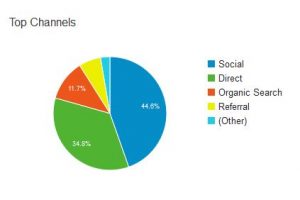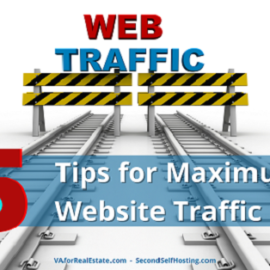Sexy-Free Search Engine Optimization
Search engine optimization (SEO) is not a sexy topic. It can be downright boring and confusing. Whatever “position” you take, a lot of it has to do with SEO terminology. If you understand what the basic terminology means, it will help you gain a fuller understanding of how to use it to your benefit.
Here’s some sexy-free, just the facts, search engine optimization terms.
- Organic Traffic – Basically, organic traffic is the traffic your site gets when someone types your search term into a Google search. Go to your Google Analytics account. You’ll be able to click on the Acquisition Overview. This graphic will show you where your traffic is coming from.
- Title Tag – This is the title of your page. The title should be consistent with your the page’s content. When you’re on the page, it will appear at the top bar of your browser. It’s also how your page will be seen in the search engines.
- Meta Description – Meta tags are the snippet of keyword-rich text, under 160 characters, that describes your page content. Search engines use this information to learn what the page is about. In the graphic above, it’s the description text in grey under the URL.
- Image Tags – Often referred to as an “alt” or alternative tag, they’re used to describe an image. Search engines don’t read images. By adding an alt tag to the image, the search engines will be able to read what that image is about. To better understand, mouse over an image on a post or page. The alt tag is the text that pops up to describe the image.
- Hyperlinks – Hyperlinks are either attached to text or images. When clicked, it will lead you to an outside page or website or to another post or page within your own site.
This is an example of hyperlinked text. An image can be hyperlinked in much the same way.
An internal link takes you from one post or page within your site. An external link takes you to a site outside of your website. It’s always best to have your hyperlinked text or image open in a new window when it leads to another website.
- Spiders – Spiders are the robots (or bots) that are used to locate and index your site’s pages and posts. As the software scans your site, it follows links from one page to the another and indexes pages as it goes. Checking your text and image links on a consistent basis is imperative to better search engine ranking. Use a broken link checker plugin so you can be notified when a broken link has been found.
- Keywords – Keyword density is how often your keyword appears on a page or post in relation to how many words are on the page. If it appears too much, the search engines will consider it “keyword stuffing”. In a minimum 300 word page or post, using your keyword 3 times is good.
These are just seven of the terms you’ll find in search engine optimization. By knowing what they are and how they affect your search engine ranking, you’ll be better able to optimize your posts and pages.




